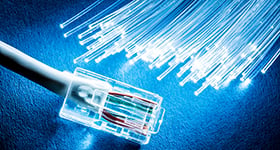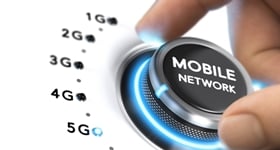It seems Samsung has its hands in almost every big technology trend – its smartphones are a major competitor in the mobility market, its smartwatches are joining the wearable tech world and now, its smart sensors for the medical research field join the company’s foray into the Internet of Things.
Samsung is partnering with the University of California, San Francisco to develop a test bed for medical sensors and see how these connected devices will be able to accelerate adoption of new preventative health solutions. The effort will be called UCSF-Samsung Digital Health Innovation Lab, joining Samsung’s initiative to partner with global healthcare institutions to enhance next-generation preventative health technologies and UCSF’s Center for Digital Health Innovation (CDHI).
Some of the inaugural projects from CDHI include collaborative care platforms using social and mobile communications technology, smart diabetes management apps, clinical trials platform using social media, mobile technology and real-time sensors focused on heart disease and other platforms to integrate patient data with multidisciplinary input and evidence.
“Harnessing new preventative health technologies to help people live healthier lives is the next great opportunity of our generation,” said Young Sohn, president and chief strategy officer of Samsung Electronics, who is spearheading the effort, in a statement. “We invite the world's innovators and entrepreneurs to join us to validate their new sensors, analytics, and preventive health solutions in a world class setting. Samsung's global Digital Health Innovation Lab initiative is aimed at enabling great new ideas to be tested, validated, and commercialized more quickly, thereby making lives better for millions of people around the world.”
Many IoT applications include communication with smartphones, which sets Samsung up nicely for a role in this market. M2M-based solutions for healthcare can range in uses, from fitness tracking devices to remote patient monitoring, improved clinical care and disease prevention.
Smart sensors combine a sensor and a microcontroller to measure, monitor and analyze health status indicators. The microcontrollers must incorporate low-power operation, integrated precision-analog capabilities and graphical user interfaces (GUIs) for the smart sensors to work effectively. The sensors also use gateways – hubs that collect sensor data and communicate it – and wireless networks to provide the connectivity for this machine to machine communication.
AT&T is one carrier working to implement M2M solutions in healthcare. It provides an mHealth platform to connect people to health data from devices and applications, a personal emergency response device that has embedded cellular and GPS technologies, and it partners with Emerson InterMetro to create connected mobile workstations so caregivers can access treatment information and update patient medical records right from a patient’s bedside.
“There are many new sensors and devices coming onto the market for consumers, but without medical validation, most of these will have limited impacts on health. Meanwhile, many practitioners also have creative ideas for new devices, but they lack the technological knowledge to fully develop them,” said Michael Blum, MD, UCSF’s associate vice chancellor for Informatics. “This partnership will bring together these two very different worlds of expertise with the resources needed to accelerate new and disruptive technologies that will truly change lives.”
Edited by
Cassandra Tucker





